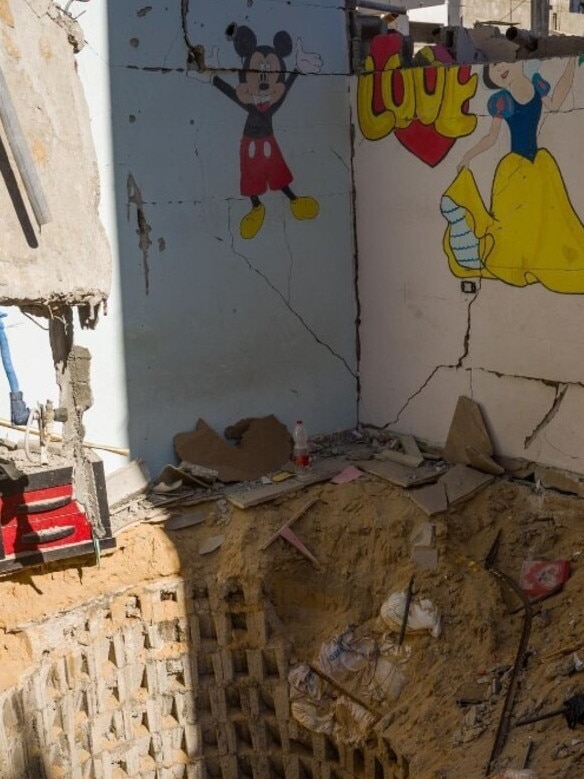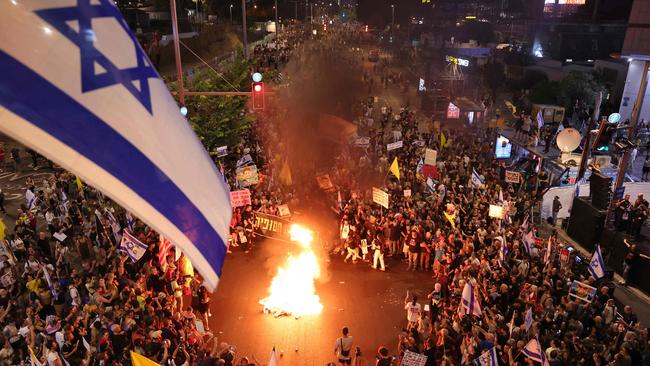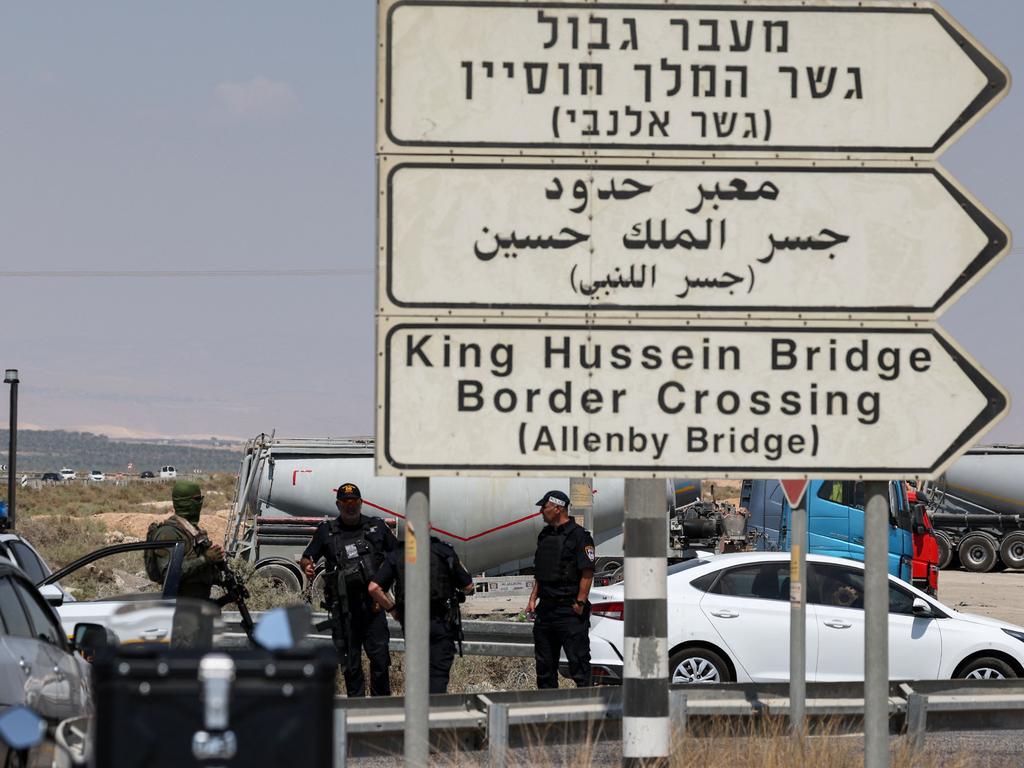Hostages fought for their lives as their executioners arrived
Four male hostages executed by Hamas desperately tried to protect the female captives, fighting off the militants who had come to kill them in the last minutes of their lives.
You can now listen to The Australian's articles. Give us your feedback.
The six hostages executed by Hamas two weeks ago desperately tried to fight off the militants who had come to kill them, hours before Israeli troops arrived to rescue them.
The Israeli Defence Force has revealed the four male hostages, who had been kept for nearly a year in total darkness with little food or water, tried to protect the two women prisoners as it became clear they were about to be murdered.
Israel’s Channel 13 TV reported that “forensic” findings showed Hersh Goldberg-Polin, Ori Danino, Almog Sarusi and Alexander Lobanov defended Eden Yerushalmi and Carmel Gat in the last minutes of their lives.
All the hostages were found with bullet wounds to their heads and bodies, the IDF has confirmed to Israeli media. They were all shot at close range.
The hostages’ families have described to Israel’s Channel 12 TV the brutal conditions in which the two women and four men were forced to live for 330 days. They were kept in narrow tunnels barely wide enough for two people with no air vents, showers or toilets, where they struggled to stand upright and even to breathe. They used water bottles they’d been given for drinking as makeshift showers, and most showed signs of injuries incurred during their incarcerations.

Troops who arrived in the tunnel where they had been killed found a few protein bars and a generator that powered a small flashlight. They also found a chess board and notebooks which have been delivered to the prisoners’ families.
The shaft leading to the tunnel was located next to a children’s playground, with cartoons painted on the walls and children’s toys scattered around – further proof of Hamas’ custom of digging tunnels within civilian infrastructure throughout Gaza.

All the hostages suffered extreme weight loss: one of the women, Eden Yerushalmi, weighed only 36kg when she was found, and Israeli troops said they all showed signs of old injuries and physical neglect, including not having showered for a long time.
According to Israeli Defence Forces, the hostages’ bodies were found one kilometre away from where troops found hostage Farhan al-Kadi late last month. It is thought that Hamas militants killed them over concerns Mr al-Kadi would give away their location to the IDF.
The executions have led to an explosion of anger in Israel aimed at Prime Minister Benjamin Netanyahu, whom the hostage families accuse of failing their loved ones. After a week of nightly demonstrations, on Sunday local time more than 500,000 people took to the streets in Tel Aviv, in protests organised by the Hostage Families Forum. Organisers said another 250,000 joined rallies in other cities around the country, demanding Mr Netanyahu’s government agree a deal with Hamas that would free the remaining hostages.

Increasingly urgent attempts by the US, Egypt and Qatar to bring about a ceasefire have not succeeded, with Mr Netanyahu refusing to budge on the key sticking point of keeping troops in the Philadelphi Corridor between Gaza and Egypt.
US mediators are looking at a formula on where and when Israeli troops pull out of the corridor, with the deal speaking of withdrawal from “densely populated” areas; but they also need to mollify an angry Egypt, the first Arab country to make peace with Israel.
US Secretary of State Antony Blinken has acknowledged that until there is a final “yes” from both sides, the delicately negotiated package to wind down 11 months of bloodshed could break down at any time.
Each day could bring “an intervening event which simply pushes things off and runs the risk of derailing what is a pretty fragile apple cart,” Mr Blinken said last week.
US President Joe Biden personally presented a plan on May 31 that would stop fighting for an initial six weeks and see both sides release captives.
Despite intensive US diplomacy, a mounting death toll and overwhelming Israeli public support for a deal, both Mr Netanyahu and Hamas leader Yahya Sinwar see their political survival at stake by accepting, said Merissa Khurma, director of the Middle East program at the Wilson Center in Washington.
“I honestly don’t see any major breakthrough. I think particularly Netanyahu is very much aware of the US political timeline and the domestic component,” she said.
With AFP





To join the conversation, please log in. Don't have an account? Register
Join the conversation, you are commenting as Logout